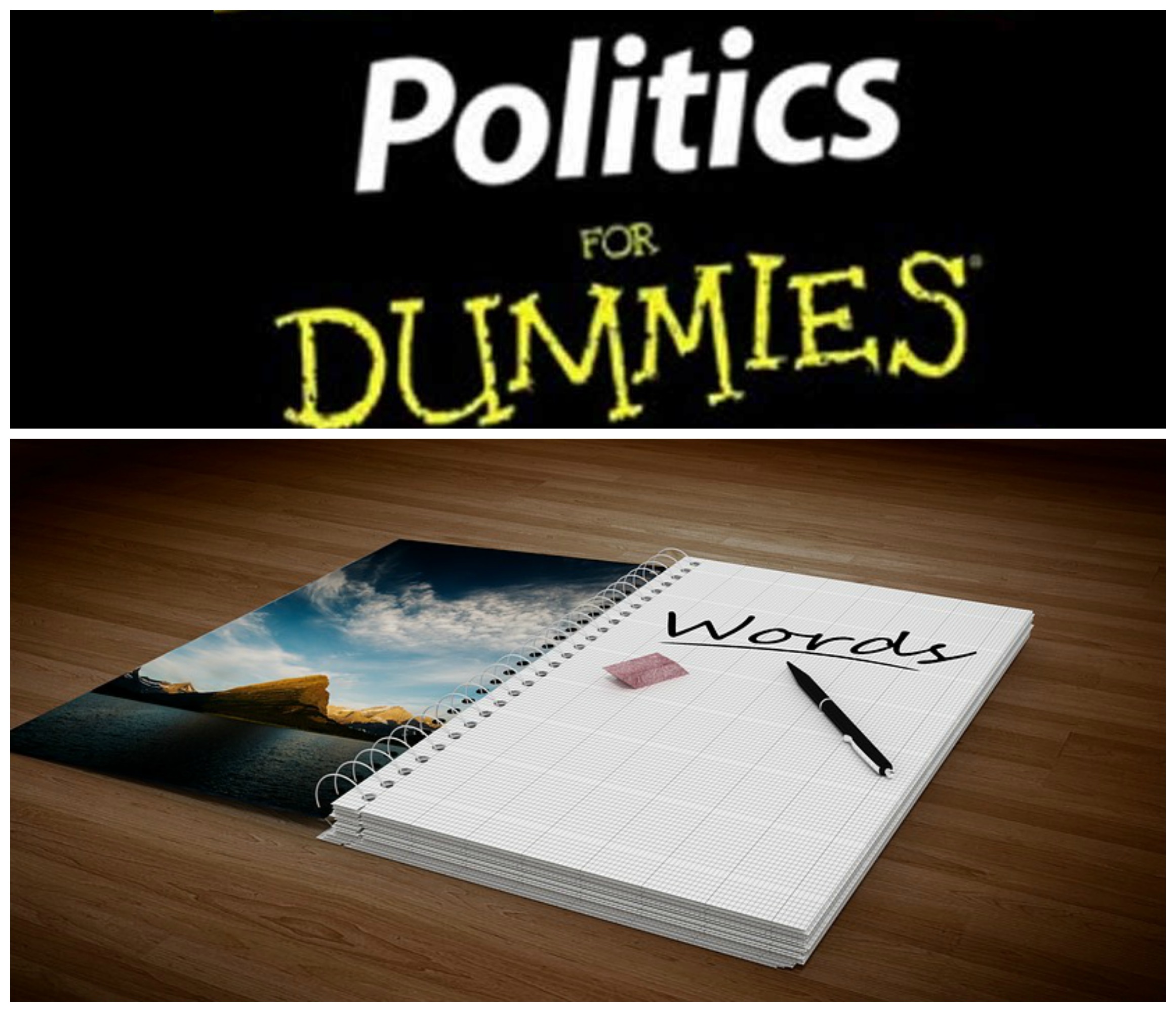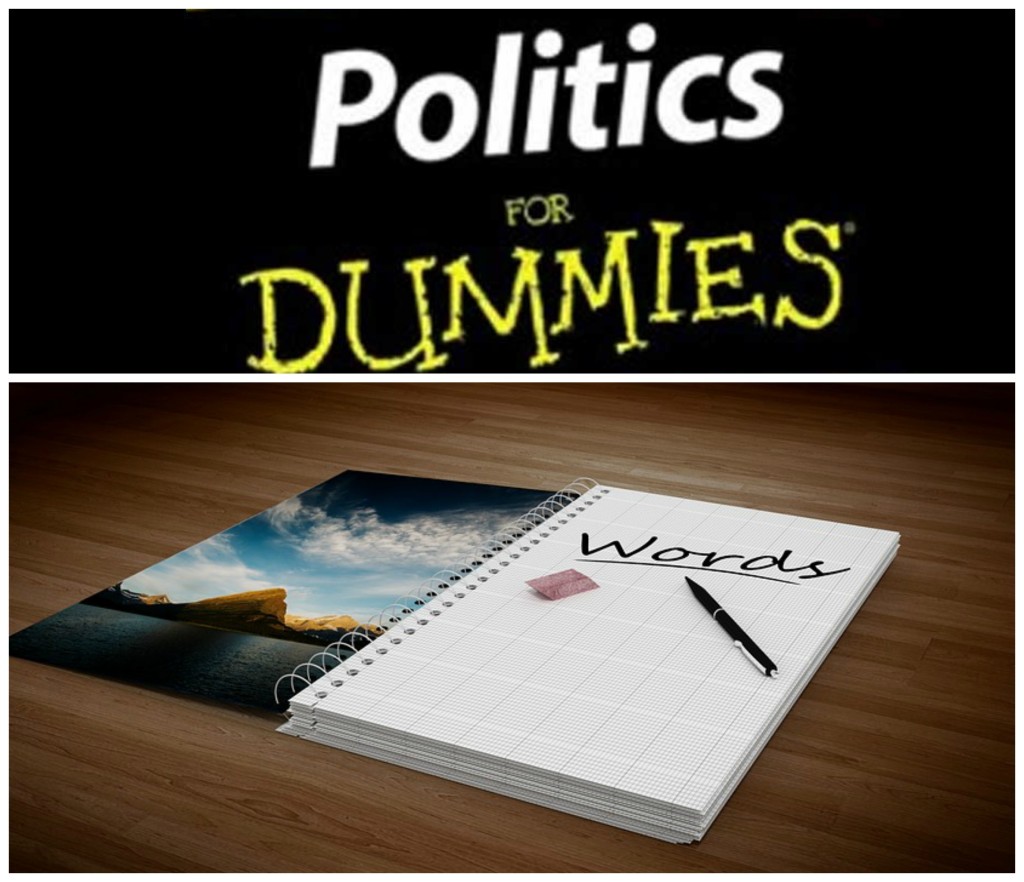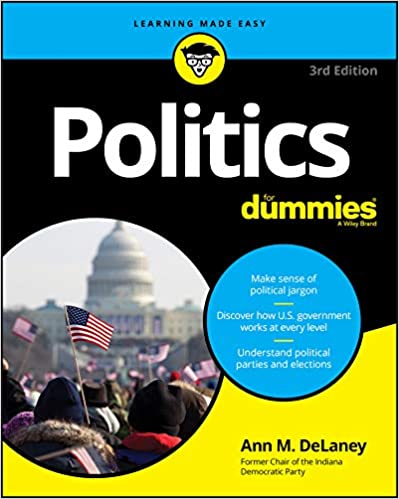So…for the past six years, I’ve made it my mission to edify and inform friends, family, and readers who are not as in-tune or attentive to all of the political words, phrases and terms they may hear floating out of the mouths of local or national cable newscasters during a hot political season and climate.
In 2010 and 2012, I put together a list of my “Politics for Dummies” top popular political phrases. Each time, I added certain new terms or words that had more relevance for the time.
And this new political cycle is no different.
We are deep in the middle of political season as we near the U.s. Presidential election this November. These days, a lot of people are getting active and involved in all of the heated political chatter, at the water cooler at work, in Supermarket checkout lines and online.
As you probably know, there are terms and words that have potent meaning and carry significant weight beyond the letters that make them up.
If you plan to keep up and follow along, then you should know about these unspoken political characteristics of these terms because if you repeat them, depending on the context, and with whom you are conversing, you’ll be characterized in one way or another.
For example, a person would know your political leaning if you use the term “police-involved shooting” as opposed to “police brutality” when discussing the reason for protests you see on the evening news. The words “illegal alien”, for example, have a certain connotation and weight compared to the term “undocumented immigrant.”

To make sure you are not “caught out there”, once again, I’ve assembled a list of political words. It seems each time I do this, the number goes up. We’re now up to the top 75 words of the latest news cycle season.
Without further ado, here are some of the top 75 political words of this 2016 election season that you should be aware of.
- Amnesty – The term given to any measure, decision, policy or law that would permit US residents who are not in the country legally or with valid authority rights, either to stay, work and/or have a path to obtaining legal US residency or citizenship. Such a move would require forgiving behavior or instances of overstaying their visas or coming into the country across borders without legal authorization.
- Anchor Babies – A derogatory term for children born in the United States of parents who are in the country without proper authorization or who may have arrived into the nation across the US/Mexico border without legal permission. Current US law provides US Citizenship to any baby born on US Soil. Those babies are afforded rights and benefits of all US Citizens that some say their parents then use to provide an anchor or basis to remain in the United States indefinitely. The term is used widely by opponents of illegal immigration especially among those in border states (states along the US/Mexico border).
- BIG Government – Federal social programs and other government spending characterized as wasteful
- Bipartisan – Supported by both sides of the political aisle.
- Black Lives Matter – A social activism loosely-formed organization that works to advance causes of concern to the black American community, mainly around social justice, equality and police-involved shootings and killings of unarmed African American and black people. The movement is controversial and has opponents who call it “anti-police”, violent, a “hate group” and believe the term is stating that “only” black lives matter when, in fact, the movement was started out of concern that collectively, the black community, feel that their lives do not and have not mattered in many aspects of society in America It is useful to add “too” to the end of the term given many people presume it is a declaration that “Black Lives Matter only”.
- Budget Deficit – Act of government spending beyond income being brought in via taxation or the selling of public goods and services. It also refers to the amount of money the government has to raise by borrowing, taxing or cutting expenditures.
- Caucus – A meeting of the members of a legislative body who are members of a particular political party, to select candidates or decide policy. Example: The Blue Dog Democrats, Congressional Black Caucus, the Nevada Caucus etc.
- Citizens United – That is the name of a party to a US Supreme Court case decided in 2010 which essentially gave corporations the same First Amendment speech rights as individuals in the United States and ushered in a new era for SuperPACs, political action committees that are heavily funded sometimes by anonymous donations from heavily-funded corporations. The term is used often when referencing political advertising on TV and/or the web that is funded by SuperPACs that have gotten significant donations from corporations.
- Civil Servant -A person who works for the government
- cis -short for cisgender, a term for people who have a gender identity that matches the sex that they were assigned at birth.
- Cognitive Dissonance –This is the feeling of uncomfortable tension which comes from holding two conflicting thoughts in the mind at the same time. Often times in politics, the term is brought up in response to a person who argues a point against his/her own personal interest in blind favor or support for a particular party, position or elected official.
- Constituency – a body of voters in a specified area who elect a representative to a legislative body. This term refers to the people or citizens that an elected official represents. Politicians work on behalf of the needs, concerns and interests of their constituents who elected them.

- Crony capitalism – This is a term describing an economy in which success in business depends on close relationships between business people and government, or a situation whereby those in power in government confer special benefits, or government contracts to friends and donors after bypassing official processes like competitive bidding, for example. The contract given to solar panel energy company Solyndra is accused as being an example.
- Cultural Appropriation – is the adoption or temporary use of elements of one culture by members of another culture, usually as a fashion trend, and oftern given a brand new hip name; as a costume, and without fully acknowledging, accepting and celebrating the history, origins and/or background of the elements; and often without recognition that the same cultural elements are not as celebrated when the originators use them in their original context (For example, cornrows being accepted and seen as trendy and hip when worn by European fashion models but seen as dangerous, counterculture, “ghetto” or unprofessional when worn by black Americans) ( Also: Often times, people/groups who allege that others have culturally appropriated elements of their culture resent that the wearer/appropriaters are also notably absent in defending or representing themselves as allies to the challenges, issues and concerns of group whose culture is appropriated)
- Demagogue – A political leader who seeks support by appealing to popular desires and prejudices rather than by using rational argument.
- DREAMERS – The term for young children of undocumented and illegal immigrants brought to the country as children who would be eligible for rights to stay, work or obtain legal residency and citizenship should a law called the DREAM Act pass. The law would create a path to citizenship for certain young children of immigrants once they attend college or perform military service.
- Electorate – All the people in a country or area who are entitled to vote in an election.
- Electoral College -This is the 538 people who cast the vote for the President of the United States. A majority of 270 electoral votes is required to elect the President. Each state has a number equal to the number of US Senators and House of Representative members it has in Congress. Every citizen who votes in a presidential election casts a vote the president (popular vote) and a person to represent them at the Electoral College.
- Entitlement Programs – This is the term given to social programs (government safety nets) like Medicare, Medicaid, Social Security, Welfare, Food Stamps, Unemployment compensation, Federal employee and military retirement plans, agricultural price support programs and Veterans’ Administration programs. Once a citizen meets a certain requirement (having contributed to social security during years working, falling below an income bracket or being disabled and unable to work, for example), they are entitled to have the government provide financial benefit, goods or services, sometimes for an indefinite period of time.
- Enthusiasm Gap – This term applies to the difference in excitement and interest in voting between two main parties, for example. As in: It is said that the Enthusiasm Gap between the Republican and Democratic voter base could spell disaster if the Democrats do not turn out more than expected at the polls this November 6.
- Exit Poll– A poll of people leaving a polling place, asking how they voted; Traditionally, TV news stations use the results of these polls to “call” or announce early which candidate may have won a particular district or state as the election goes on during the election day.
- Filibuster – A strategy employed in the United States Senate, whereby a minority can delay a vote on proposed legislation by making long speeches or introducing irrelevant issues. A successful filibuster can force withdrawal of a bill. Filibusters can be ended only by cloture.
- Fiscal Conservative – A perspective preferring that the government spends tax payer dollars in a manner that does not include too much expenditure that will further increase an existing deficit. As in: Several candidates up for elections are touting themselves as being Fiscal Conservatives who question the money earmarked for several social programs.
- FLOTUS – Short for First Lady of the United States
- Front Runner – The political candidate that is in a leading position in a race or other competition: the front runner for the presidential nomination.
- Gaffe – Pronounced (Gaf), it is the term for a faux pas or a socially inadequate statement or mention. As in: Since assuming the position as chief of the party, the leader has made a series of unfortunate gaffes that have made the headlines.
- Get out the vote or GOTV – Describes two types of political campaigns, both aimed at increasing the voter turnout in one or more elections.
- Gerrymandering – The manipulation of the district or municipal boundaries of (an electoral constituency) so as to favor one party or class.
- G.O.P. – This term stands for Grand Old Party, a euphemism for Republicans.
- Illegal Immigrant – The term for an immigrant who is in the US without proper authorization or whose previous authorization (visa) has expired and has not been renewed or re-authorized. It is a politicized word that is not used by supporters/sympathizers of immigrants in the country without authorization.
- Incumbent – An official or party that is currently holding office. If someone challenges the Incumbent, he/she is trying to take away the seat of the existing office-holder.
- Inclusion – the action or state of including or other groups previously not represented in a job, work culture, school environment or other social or political group.
- Inside the Beltway – This phrase references the name for the highway that encircles the geographic location of the District of Columbia and areas surrounding the Nation’s Capitol. It has come to signify a clear distinction and/or disconnect between those who live and work within those boundaries and who create laws and policy; and the rest of the country, the majority that do not. As in: There is a general sense of frustration among the electorate that Inside the Beltway politicians running the country are clueless about their main concerns.
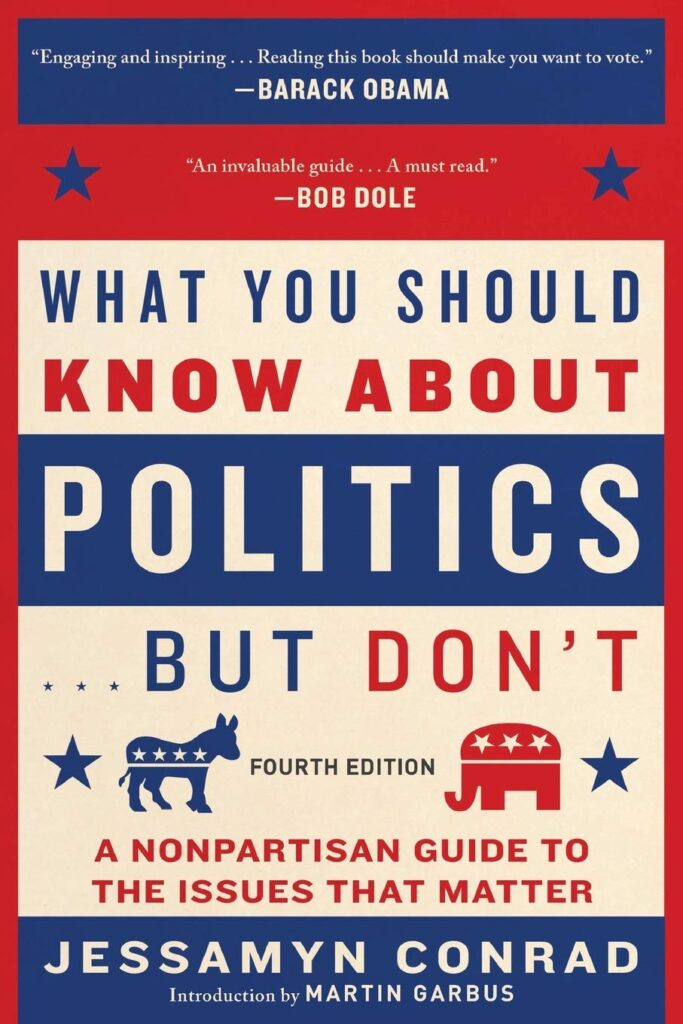

- Judicial Activism – It is a view that the US Supreme court justices and even lower court federal judges can and should creatively use their personal background, consideration of needs of contemporary society when interpreting the US Constitution. It is the opposite of judicial restraint, the act of applying and interpreting laws based on a strict reading of the US Constitution and the intent of the framers of the founding fathers.
- Intersectionality – This is a term first coined in 1989 by American civil rights advocate and leading scholar of critical race theory, Columbia and UCLA law professor Kimberlé Williams Crenshaw, which is the study of overlapping or intersecting social identities and related systems of oppression, domination, or discrimination. Put more simply, it is about constituent groups that are part of larger advocacy group that feel that they are invisible, not included and erased from the discussions, concerns and advocacy of the main group that claims to also represent their interest. For example, women of color issues about racism not being defended among mainstream feminist groups; violence against LGBTQ people of color not recognized among mainstream Gay Rights groups; the needs of girls not considered in policy discussions about the school-to-prison pipeline that often focuses on boys, etc.
- Lame Duck – the last part of a term or year of an elected official after a successor has been elected (or is about to be elected); usually a time when there is little effort or interest in adopting their policies of proposals and therefore, during this period the outgoing official is relatively ineffectual. The period of time during a legislative session is called the Lame Duck Session.
- Left Wing/Liberals/Liberalism – Political ideology grounded in tolerance and advance of a broad interpretation of civil liberties, promotion of widespread popular participation and support for a stronger and active role of government in regulation and manipulation of private activities for a perceived greater good of spreading and supporting equality.
- LGBTQ– short for Lesbian, Gay, Bisexual, Trans, Queer, a term that replaced “gay community” to be more inclusive of more diverse groups within that community.
- Margin of Error – That is the statistical term for the percentage points by which a poll could be off or incorrect. Therefore, for example, even if a candidate is losing on an issue according to a certain poll of likely or registered voters, if the percentage point differences are close, that margin of error could provide comfort to the candidate with the lower percentage that he or she may still be within a position to overtake the lead.
- Midterm Election or Midterms – A type of election where the people can elect their representatives in the middle of the term of the executive or of another set of members. Or the Election that occurs in the middle of a presidential election. For example, the last two Presidential elections occurred in 2008 and 2012. The Mid term elections were in 2010 and 2014 because the president was not up for re-election those years. Traditionally, voter turnout is lower during mid-terms elections.
- MSM – An acronym for Mainstream Media, the members of the established press and the organizations they work for which make up much of the sources where Americans receive information from online, television, radio or in newspapers. They include CNN, Washington Post, the New York Times, Wall Street Journal, Huffington Post, NBC News, etc. Conservatives, Republicans and those on the political right, often accuse MSM of having a bias towards liberals and Democrats.
- Messaging – This term is used to describe a series of short descriptive terms related to a particular policy, initiative, explanation or communications that is meant to be reiterated, recited, almost verbatim to an audience usually in addresses, letters, speeches etc. As in:That candidate was not clear in messaging his position to the voters which is one of the reasons he did not get reelected.
- Monetary Policy – An administration’s ability to manipulate, elevate or improve money stock, interest rate levels and health of an economy using rules and policies.
- Neocon– Short for Neoconservatism, this term references a political movement born in the United States during the 1960s among Democrats who became disenchanted with the party’s foreign policy; or a former liberal espousing political conservatism
- Obamacare – This term term, usually framed in a derogatory context, references the Health Care Reform Act pushed by President Barck Obama and the White House and passed into law in 2010. It has since been embraced by and used by the White House and the president in an attempt to deflate the once toxicity level of the term.

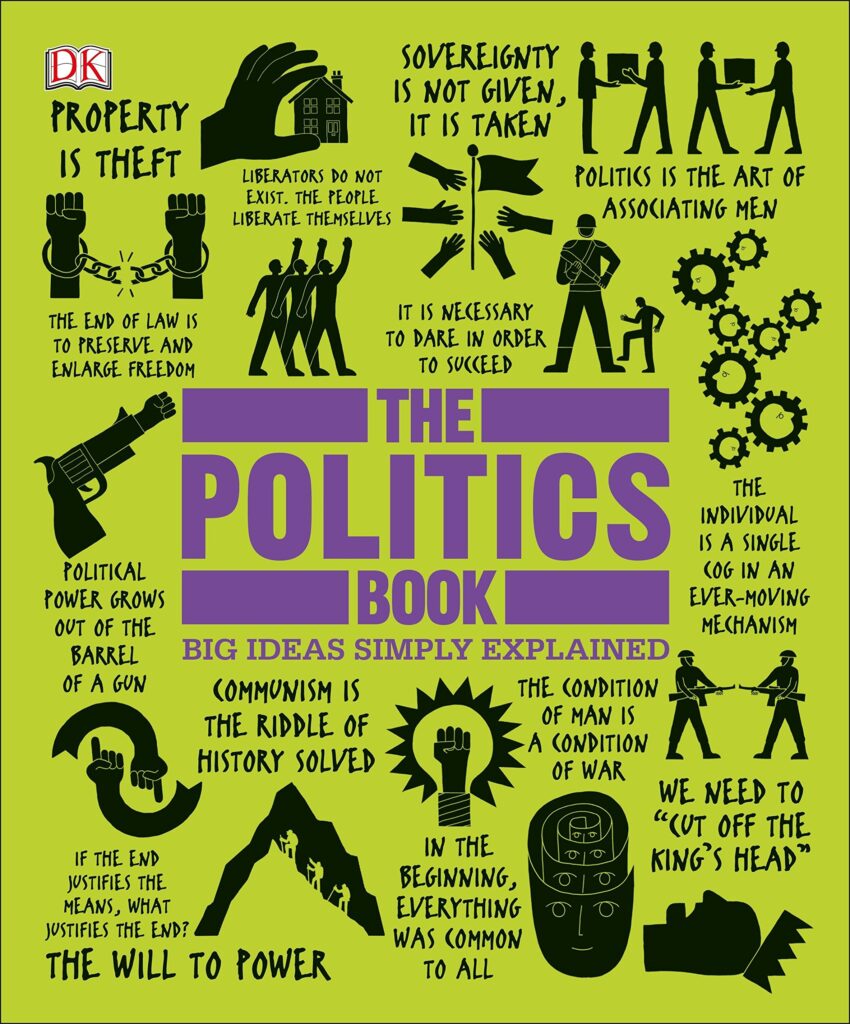

- Partisan – This term refers to a fervent, sometimes militant support of a party, cause, faction, person, or idea, usually within the context of equally fervent opposition to an opposing party. As in: The governor went into office promising the people that he would be non-partisan , but as of late has been engaging in partisan politics slamming the other party and turning off the independents in the process. Non Partisan – Not favoring any party
- Patriotism – is an emotional attachment to a nation which an individual recognizes as their homeland. This attachment, also known as national feeling or national pride, can be viewed in terms of different features relating to one’s own nation, including ethnic, cultural, political or historical aspects.
- Poll – A questioning/survey, usually via telephone call, of a sample of people for their feelings on a particular issue, such as what they think of a political party or a commercial product.
- P.O.T.U.S – This is an abbreviation for Politics of the United States or President of the United States (compare: SCOTUS referenced the Supreme Court of the United States); FLOTUS is First Lady of the United States.
- Primaries – a preliminary election to appoint delegates to a party conference or to select the candidates for a principal, especially presidential, election.
- Pundit – A person who offers to mass media his or her opinion or commentary on a particular subject area (most typically political analysis, the social sciences, technology or sport) on which he or she is knowledgeable (or can at least appear to be knowledgeable), or considered a scholar in said area.
- Private Sector – Goods and services provided by private business enterprises and not by government or bureaucracy. It is different from the public sector or the nonprofit sector.
- Progressives – This word refers to a political attitude favoring or advocating changes or reform.
- Read out – This term applies to analysis or interpretation of information or data on a particular political position. As in: What is the White House’s read out on the public outcry from the oil spill?
- Referendum – This word references the overwhelming majority vote by the public on an issue or a candidate. It is evidence of a strong and definitive acceptance or rejection of status quo when a party in office is voted out by a significant majority. Should Hillary Clinton not be elected, it will be a referendum on his failed policies of President Obama, GOP Nominee Donald Trump says.
- Reach Across the Aisle – A term for making an effort to negotiate or mediate differences with those who are on the other side of the political spectrum in the spirit of compromise. It references the actual physical aisle that divides the legislative halls where members of the two parties sit on opposite sides. As in: In order to garner support for his measure, the Senator had to do reach across the aisle and work with Senators of the other party.
- Rhetoric – language designed to have a persuasive or impressive effect on its audience, but often regarded as lacking in sincerity or meaningful content.
- Right to Work Laws/States – Laws in a state which make it illegal for labor unions and employers to enter into contracts which mandate that only union members can be employed in jobs under the contract. It was the subject of an unsuccessful attempt to recall Wisconsin governor Scott Walker when he implemented a law and impacted unionized workers in that state.
- Right Wing – Term for conservative political thought which emphasizes values of patriotism, individual responsibility, and acceptance of wealth inequities (and ergo limited government intrusion or manipulation of wealth inequities) status and privilege with caveat that success is built upon work without the need of that success to be shared evenly across socioeconomic class.
- Road to 270 –To elect a US President, the first to obtain 270 electoral college votes win. Unlike the popular vote, based on individual votes cast by each citizen, under the current electoral college system. In addition to voting for the person of choice, voters also vote for delegates who have certain number of votes that they can cast in their state. Each state has a certain number of delegate votes depending on the population in that state. The road to 270 refers to the various scenarios that a presidential candidate has in order to realize that needed 270 votes.

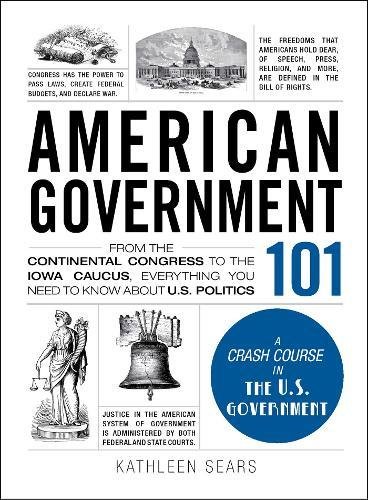

- SCOTUS – Short for the 9 members of the Supreme Court of the United States who are elected to lifetime terms by the sitting president. The court is usually balanced conservative or liberal. The judges are called Justices. There is a Chief, who currently is John Roberts. The others judges are called Associate Justices and include three women: Elena Kagan, Sonia Sotomayor ( both Barack Obama appointed) and Ruth Bader Ginsburg (appointed by Bill Clinton); and all liberal; joining them as liberal-leaning is Stephen Breyer (also appointed by Bill Clinton). The more conservative leaning Associate Justices along with Roberts are Clarence Thomas (the only African American justice,and appointed by George H.W. Bush), Anthony Kennedy (appointed by Ronald Reagan) and Samuel Alito (appointed by George W. Bush)
- Social Justice Warrior – Commonly abbreviated SJW, is a pejorative term for an individual promoting socially progressive views; including feminism, civil rights, multiculturalism, political correctness, and identity politics.
- Social moderate – A position that is neither conservative nor liberal on mainstream social issues but represents a more tolerant position on controversial cultural debates and matters including abortion, gay marriage, legalization of marijuana etc.
- Spin – Can be used as a verb or noun, a favorable perspective or slant to an item of news, or potentially unpopular policy. As in: After a controversy erupts and the media gets a hold of it, there is a right and wrong way to spin it to your advantage.
- SuperPAC – The name for political action committees which, after the Citizens United case (see above) would be receive even more funding that usual and tradition.
- Surrogate – A campaign surrogate is a term used to describe a person who acts on the behalf of a candidate running for some sort of political office. The campaign surrogate often appears at public events that the candidate cannot make it to, or may simply appear to bolster the image of the candidate in a certain demographic
- Stumping – campaigning or attending a political rally on behalf of and to garner support for another candidate running for office. As in: The President was in Ohio today stumping for the candidates up for congressional elections.
- Talking Heads – A pundit is a person who offers to mass media his or her opinion or commentary on a particular subject area (most typically political analysis, the social sciences, technology or sport) on which he or she is knowledgeable (or can at least appear to be knowledgeable), or considered a scholar in said area.
- Talking Points – a set of briefing notes or summaries on a particular topic that are recited, nearly verbatim, whenever the topic is broached. As in: The mayor veered off his talking points and made some off the cuff remarks that were not received well when they were reported in the media.
- Tolerance – the ability or willingness to tolerate something, (or people or culture) in particular the existence of opinions or behavior that one does not necessarily agree with, or are comfortable associating with
- Undocumented – The term for an immigrant who is in the US without proper authorization or whose previous authorization (visa) has expired and has not been renewed or re-authorized.
- Voter Bloc -A group of voters that are strongly motivated by a specific common concern or group of concerns to the point that such specific concerns tend to dominate their voting patterns, causing them to vote together in elections. It can be defined by age, race, region, or interests.
- Welfare State – A government which spends a lot of money on directly providing personal benefits to families or qualifying individuals versus on national defense, law enforcement, transportation and administering public lands.
- White Privilege- The benefit of the doubt of being honest, credit-worthy, trustworthy, credible, competent and qualified given to people of the white race (or groups that identify white or “honorary white” like Asians and Asian American); Benefiting from a society where the history, beauty aesthetics and ideals, culture and heritage taught mainly in schools, and that are elevated as superior to others are of the white or Anglo-Saxon culture, race, history or racial identity; Also, refers to the ability to not be aware (or aloof ) to other cultures, and their exclusion in film, media, and other esteemed positions, generally; and the general predisposition to presuppose that one is authorized and able to articulate and determine what is best for people of color and the non-privileged; and that when one, as a member of the privileged race, does pontificate a position, it will carry more weight and granted superior deference, generally, in discourse.
- Xenophobia/Xenophobic-intense or irrational dislike or fear of people from other countries; or from other cultures.

Jay Jay Ghatt is also editor at Techyaya.com, founder of the JayJayGhatt.com and JayJayGhatt.com where she teaches online creators how to navigate digital entrepreneurship and offers Do-It-For-You Blogging Service. She manages her lifestyle sites BellyitchBlog, Jenebaspeaks and JJBraids.com and is the founder of BlackWomenTech.com 200 Black Women in Tech On Twitter. Her biz podcast 10 Minute Podcast is available on iTunes and Player.fm. Follow her on Twitter at @Jenebaspeaks. Buy her templates over at her legal and business templates on Etsy shop!
